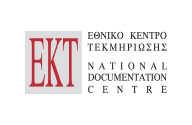Τhe form and gender of civil society in Greece during the first years of the crisis
Synopsis
Τhe study explores aspects of civil society in Greece during the first years of the crisis i.e. the years between 2010-2014. This period begins with an organizational proliferation and an explosion of citizen’s demands and ends shortly before SYRIZA's rise to power. It uses the type and gender of the organizations as main axis of analysis, highlighting the importance for the organization’s function and relationship towards the state. Through quantitative research and personal interviews with members of informal and formal organizations, which gathered and posed demands, the study points out two basic transformations in the civil society of Thessaloniki, the second largest city in Greece.
The first one is the formation of anti-hegemonies, expressed by the consolidation of informal organization. It is argued that, during that period, citizen’s demands were channeled mainly into “anti-organizations”, which challenge the traditional relationship between civil society and state.
The second transformation is the high participation of women in the organizations during the first years of the crisis. According to the study, civil society has moved closer to family, rather than to the market and the state, which, in combination with the increase of informal organizations, resulted in an increased participation of women in the sphere. This increase affects the organizations’ strategies, but does not necessarily challenge gender hierarchies within them.
- Loukidou-full.pdf Loukidou-full.pdf
- Loukidou-intro.pdf Loukidou-intro.pdf
- Loukidou-chapter 1.pdf Loukidou-chapter 1.pdf
- Loukidou-chapter 2.pdf Loukidou-chapter 2.pdf
- Loukidou-chapter 3.pdf Loukidou-chapter 3.pdf
- Loukidou-chapter 4.pdf Loukidou-chapter 4.pdf
- Loukidou-epilog.pdf Loukidou-epilog.pdf

This work is licensed under a Creative Commons Attribution-NonCommercial-ShareAlike 4.0 International License.




